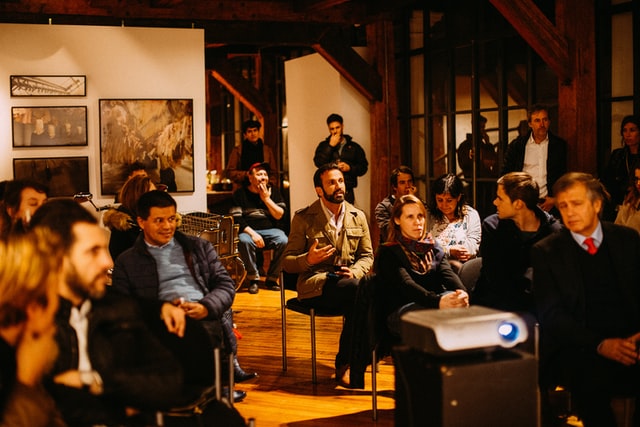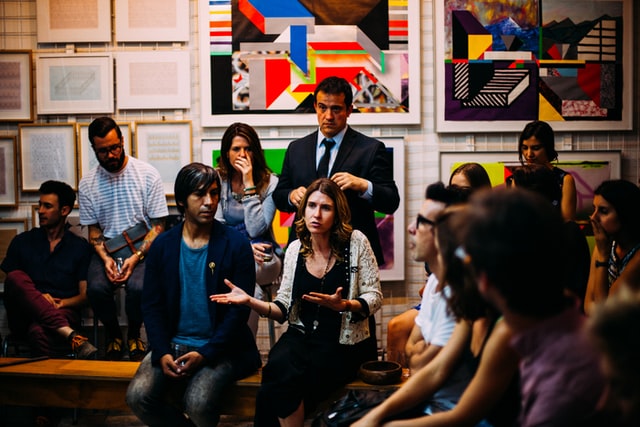The processes that drive community engagement in our cities are broken, so most of us avoid them. They take up a lot of time, involve a dizzying amount of coordination, require divine measures of patience and rarely lead to the satisfaction of seeing something worthwhile accomplished in a quick and sustainable fashion.
Like most political systems, these processes rotate around a preservationists’ mindset. A preservationist mindset is one committed to preserving energy. Preservationists perceive innovation as a waste of energy…both future energy and all the energy thus far invested into the system, so there is resistance to the idea of changing things up.
Preservationism has been baked into American suburbs from the very start. When the Federal Housing Authority began backing mortgages, a top priority was to ensure their investment was as stable as possible. This is how we got standardized neighborhood and housing design. It’s why suburbs are homogeneous, fixed entities, unable to adapt to residents’ changing needs. It’s also why NIMBYs resist new developments: the stability of their property investments depends on things staying the same.

This plays out in civic engagement too. Community meetings can be slow-moving and ineffective. Organizing community-wide initiatives requires enormous coordination and patience. Innovative thinkers have to be willing to deal with loads of red tape and bureaucracy. Fees, paperwork and meetings deter entrepreneurs and change-makers. On one end of the spectrum, there’s such an intense aversion to change that new ideas fail to take root and things stay mostly the same.
On the other end of the spectrum, there’s a nearly religious dedication to inclusion. In most knowledge-reliant processes and systems, expanding the number of inputs is generally a good thing. But it requires precision since not all inputs are created equal. Some can prove a waste of energy and space. Without some way of qualifying and filtering the inputs, there’s no guarantee that increasing the quantity of voices at the table really improves the quality of the dialogue.
In the city-building context, the idea that a city is only truly just when everyone has a say leads to even longer, more complex processes and ever-winding conversations, not to mention the efficiency foregone if there were better ways to filter engagement to include those most qualified to participate.

Yet despite all of this brokenness, here are three benefits we could gain from engaging in our city in a tangible way:
1. Becoming more connected to our communities improves our vision of the world, empowering us to move through it more wisely.
These days, with our increasingly customizable information landscape, we can find ourselves trapped in a bias-confirming echo chamber we never signed up for. Technology, with its preference-detection algorithms is constantly curating our exposure to the world such that everything is tailored perfectly to our taste. In the short-term, this is pleasurable. It’s nice that Spotfiy knows my favorite music, that Instagram knows I’m looking for black linen shorts and that Google can predict the news stories I might be most interested in.
Yet, in the long-term, such a buttressed experience of the world is actually weakening us. Borrowing from Jordan Peterson:
“You see what you aim at…you’re a lot more blind than you think. There’s a lot of the world that you don’t see. You see most of what’s in front of you in a very blurry way. Your peripheral vision is extremely low resolution. You see clearly a tiny focal area that’s where you’re pointing your eyes, and you point your eyes at what you want to pay attention to…and what you want to pay attention to is generally associated with what you want.
The world reveals itself to you in relationship to what you want. That’s really helpful because you wanna see the world so you don’t stumble blindly through it. You want to get to where you’re going.”
Participating in the life of our city is a way of directing our focus and learning to see the world more fully. This process has a pay off. Not only will we be able to see more clearly through our own biases and assumptions, but we’ll gain more information about the way the world really is. Being involved in our community positions us to hear other people’s perspectives on the city (and the world), thereby filling in our blindspots, making us less vulnerable and decreasing the likelihood that we’ll…fall into a pit.
2. Becoming more involved in our communities builds humility
Presently, our cities are facing seriously complicated issues: crime, tensions with the police, unstable economies, rising inequality. Reading and thinking about these issues or listening to a trending podcast from the comfort of our armchair is easy.
But getting down into the nitty-gritty requires more patience and humility. Becoming involved in our city, even in a small way, will show us very quickly how complex these issues are, how little we control, the untenability of human nature, and the slow pace of change.
This can be dispiriting. None of us want to be reminded of our limited capacity to effect change, yet if we can embrace the process and the discomfort, we will find ourselves more tightly anchored to true reality (thereby decreasing our vulnerability in the world) and set on the path to true humility.
3. Becoming more involved in our community forms us into more integrated individuals by challenging us to put our beliefs into action
Perhaps the most important benefit from becoming involved in our communities is the opportunity it provides for us to put our beliefs and values into action. This is important because it is only through action that our beliefs and values truly become part of our character, part of our identity.
Taking action in our communities puts our beliefs and values to the test and this is the kind of testing we need in order to become people of integrity. Community involvement also brings a level of accountability that isn’t present when we stick to our comfort zones or engage in virtual activism. Living out your values in comfortable spaces strokes our feathers, but won’t push our buttons…and it’s from pushed buttons that we grow in character.
Getting involved in the city will look different for everybody. For some of us, it will mean attending neighborhood meetings, others may find joy in organizing a neighborhood happy hour, creating a petition to clean up a park, or volunteering at a community garden. A few brave souls will run for public office.
Gratefully, these benefits — seeing the world more clearly, growing in humility and becoming more integrated are available to all of us, no matter how small of a step towards the city we take.
